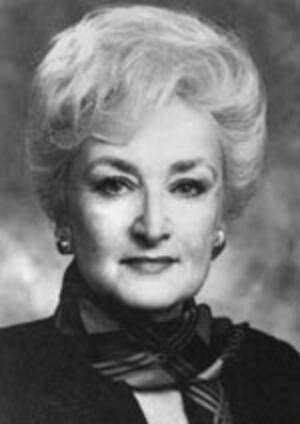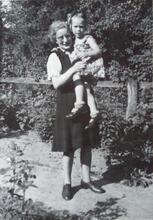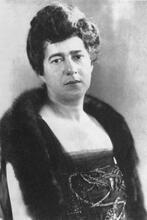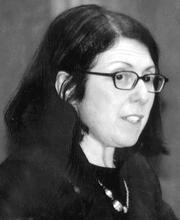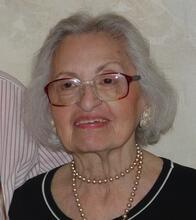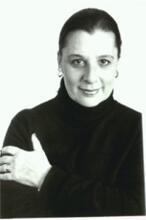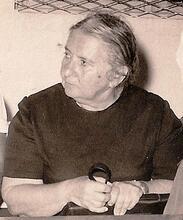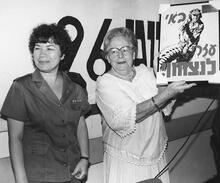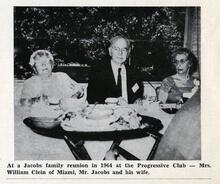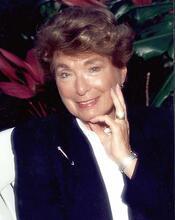Shoshana S. Cardin
Shoshana Cardin was an iconoclastic political activist whose guiding principle has been to serve the Jewish people. Though a supporter of women's rights, she locked horns with feminists, not to mention prime ministers and presidents, due to her strongly held views on the issues of the day.
Institution: United Israel Appeal.
Shoshana S. Cardin’s persistent negotiation with world leaders helped ensure the release of Russian refuseniks from the Soviet Union and helped secure resources for them to build new lives after emigrating. In 1984, Cardin became the first woman president of the Council of Jewish Federations, where she helped unify opposition to proposed restrictions to Israel’s Law of Return. She served as chair of the National Conference on Soviet Jewry, heading a delegation to meet with Soviet leaders, including the head of the emigration office, which led to the loosening of restrictions on Jewish emigration. She was honored with the National Zionist Organization of America’s Justice Louis D. Brandeis Award and Hadassah’s Henrietta Szold Humanitarian Award.
Introduction
It was an indication of things to come when eleven-year-old Shoshana Shoubin stood outside Baltimore’s most popular movie theater one Sunday in 1938, collecting money for the Jews settling in the land of Palestine. In a single afternoon she filled two canisters with coins donated by people who responded to her persuasive determination, and as a result, young Shoshana was rewarded with a prize from Keren Kayemet.
During her lengthy career, Shoshana Shoubin Cardin did much the same thing—but on an entirely different scale. A savvy, tough, and elegant woman known by presidents, dictators, and almost everyone else simply as Shoshana, she became perhaps the most widely respected and successful lay leader in the Jewish community of the 1980s and 1990s.
In the process, this woman, who has refused to challenge the title “chairman” just because she is a woman, and who fought the National Organization for Women in the 1960s and 1970s when she felt it was degrading the value of women’s contributions as volunteers, broke the glass ceiling over almost every major national and international Jewish organization.
Family and Education
Cardin’s early years were modest in financial resources but rich in family and yiddishkeit. She was born in Tel Aviv on October 10, 1926, and emigrated to the United States with her parents just over a year later. The Shoubin family settled in Baltimore, Maryland, in the East Baltimore section, which was then a predominantly Jewish neighborhood peopled by recent immigrants.
Cardin earned a BA in English at the University of California, Los Angeles, after three years at Baltimore’s Johns Hopkins. She met Jerome Cardin on a blind date and married him when she was nearly twenty-two. While her husband finished law school and began his career, which later included real estate development, she taught public school. She began substitute teaching and became a tenured teacher of seventh and eighth grades in the Baltimore public school system. Pregnant women were not allowed to teach, so Cardin quit when she was expecting the first of her four children: Steven, Ilene, Nina, and Sanford.
The belief that kol Israel arevim ze la’ze, that all the Jewish people are responsible for one another, is the principle on which Cardin built her career of service and one she instilled in her children. Cardin took pride in the fact that three of her children—a speech pathologist working as a Jewish educator; a Conservative rabbi and editor of the Jewish intellectual newsletter Sh’ma; and an attorney working as the head of a Jewish family foundation—were deeply committed to serving the Jewish community.
Career
While home with her young children, Cardin continued the career of volunteer work she had begun so young and was soon invited to sit on the boards of directors of local nonprofit organizations. She also became president of Maryland’s Federation of Jewish Women’s Organizations, a position she used to foster awareness of racial inequality at a time, in 1960 and 1961, when the Jewish community was just getting involved with the civil rights movement. “It was unusual for women in the southern tradition to be political activists,” she recalls of the controversy sparked by her invitation to a local Hispanic politician to come speak to the group.
In 1967 Cardin served as a delegate to Maryland’s Constitutional Convention, and in 1968 she was invited to join Maryland’s Commission for Women, which she chaired from 1974 to 1979. Beginning in 1976, she worked as an activist to change federal and state laws pertaining to women’s ability to obtain credit. In 1976 and 1977, Cardin testified at hearings in Maryland and Washington, D.C., and played a central role in convincing legislators to allow women to obtain credit in their own name. She served as commissioner of Maryland’s Commission on Human Relations from 1979 to 1982 and as chair of Maryland’s State Employment and Training Council from 1979 to 1983.
Cardin was offered a job touring the country for banks to teach women about their rights and was nominated to serve on the Federal Reserve Board but turned down both opportunities “because my husband traveled a lot, and my family came first.” That kept her close to home for a time, where she devoted her bountiful energy and talent for organizing and leading people to local Jewish and civic groups. She became deeply involved with Baltimore’s Jewish Community Center and instituted a permanent cadre of volunteers to support its work.
In 1984 she became the first woman elected president of the Council of Jewish Federations (CJF), the umbrella organization for the groups that raise money and coordinate social and educational services in Jewish communities across North America. It was during her time at the helm of CJF, which lasted until 1987, that her husband was convicted of stealing $385,000 from a Maryland savings and loan. After serving one year of his fifteen-year prison term, he was diagnosed with lung cancer and granted medical parole. He died in 1993.
During her CJF presidency and afterward, as chairperson of the organization’s Who Is a Jew Committee, Cardin played a critical role in unifying the Jewish community’s leadership in opposition to proposed changes in Israel’s Law of Return. Cardin met more times than she could remember with the heads of the Israeli coalition government, Yitzhak Shamir and Shimon Peres, and ultimately played a seminal role in convincing them to jettison the legislation, which would have altered the law that states that anyone born to a Jewish mother or converted to Judaism may immigrate to Israel and be granted immediate citizenship and required that all conversions be approved by the Orthodox rabbinate. “I can’t believe how many times I’ve challenged presidents and prime ministers,” she said, chuckling.
From 1988 to 1992, Cardin served as chairperson of the National Conference on Soviet Jewry. In May 1989, she led a small delegation that held, for the first time, a meeting with Soviet leaders, including the head of OVIR, the emigration office in the former Soviet Union. Rudolph Kusnetzov was responsible for the fact that more than eleven thousand refuseniks were prohibited from leaving the former communist nation, and it was from that meeting and the several that followed with Cardin, in Copenhagen and Helsinki, that the restrictions on Jewish emigration began to be loosened.
In December 1990, Cardin was elected to head the Conference of Presidents of Major American Jewish Organizations, a coalition of several dozens of the largest and most influential Jewish organizations whose role is to represent the Jewish community’s interests to the U.S. Government. She was the first woman to hold that role.
It was while in that position that Cardin interceded with President George Bush in September 1991, after he made remarks implying that he was being victimized by Jewish lobbying efforts to get the American government to guarantee $10 billion in loans the Israeli government was seeking to borrow on the international market, to fund the resettlement of the hundreds of thousands of Jews from the collapsing Soviet Union who were pouring into the Jewish state. After some thirteen hundred Jews spent the day lobbying their congressional representatives to release the loan guarantees, Bush angrily told reporters at a White House press conference that he was just “one lonely little guy” opposing them. Cardin wrote to the president, calling his remark “disturbing.” In short order Bush apologized for sounding “pejorative.”
In 1994, Cardin became chairperson of the United Israel Appeal, the organization that allocates the money raised in the United States for Israel to the Jewish Agency for Israel, which distributes the funds to the recipient agencies in the Jewish state. She also worked as national chair of the Jerusalem 3000 Committee, which coordinated activities in the United States for the Israeli capital’s trimillennium, was national vice-chair of the United Jewish Appeal, vice president of the Jewish National Fund, and served on the board of governors and executive of the Jewish Agency for Israel and on the board of directors of the American Jewish Joint Distribution Committee, which aids distressed Jewish communities all over the world.
Later Work and Accolades
Cardin retired from the United Israel Appeal in 1998 and then served as president of the Jewish Telegraphic Agency from 1999 until 2001, when she became the Agency’s chairperson. She sat on the executive committees of the United Jewish Communities (the unified body of the United Jewish Appeal, the United Israel Appeal and the Council of Jewish Federations, which merged in 1999) and the National Jewish Center for Learning and Leadership, which is devoted to promoting religious pluralism. She was chairperson of the Shoshana S. Cardin Jewish Community High School in Baltimore, Maryland.
In 1990 Cardin was awarded the Justice Louis D. Brandeis Award by the National Zionist Organization of America, and in 1994, Hadassah honored her with its Henrietta Szold Humanitarian Award. Cardin said that her commitment to Jewish peoplehood has fueled the work she did. “The most important message I have wanted to give people has been the importance, the pride and the responsibility, the blessing of being Jewish. That’s what gives me the strength to challenge what I have challenged and bring about change where I could.”
Cardin, Nina Beth [daughter of Shoshana S. Cardin]. Interview with author, November 1996.
Cardin, Shoshana S. Interview with author, November 1996.
Goldberg, J. J. Jewish Power (1996).
Jewish Telegraphic Agency archives.

